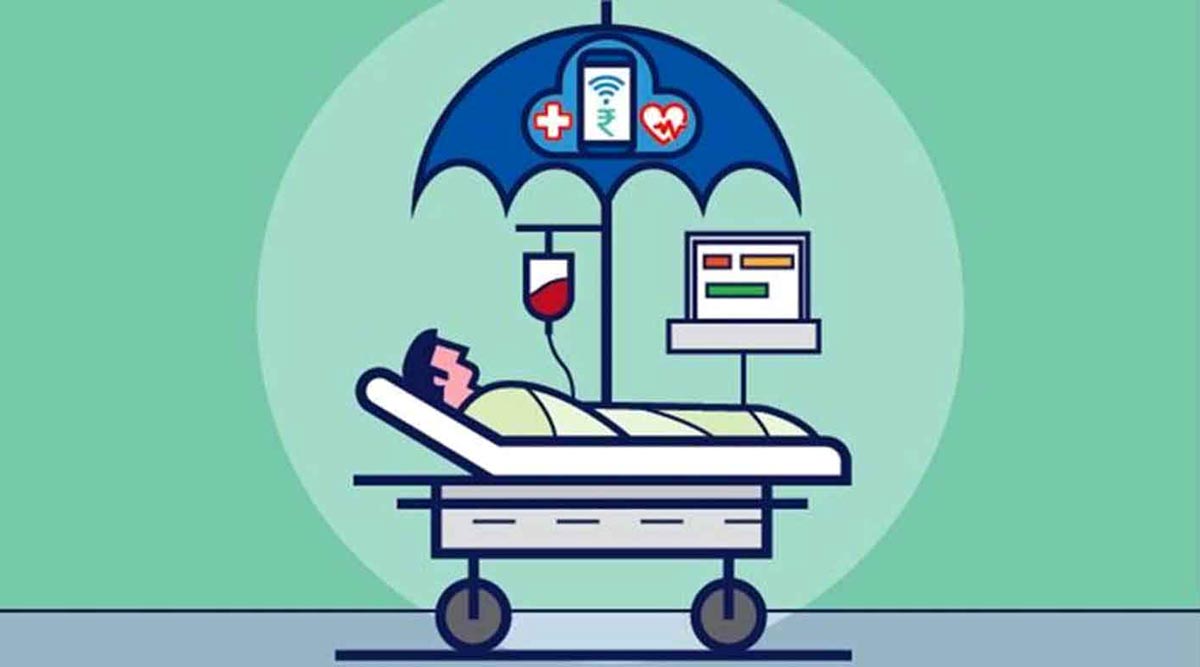World Health Day: How to look after your health by planning your finances well – The Financial Express

It’s important to stay healthy, not only to perform your duties freely, but also to ensure that the ever increasing healthcare costs don’t drain out your savings and derail your investment plans in case of hospitalisation – especially in a private hospital.
“Health, like they say, is wealth; and healthcare, like we know, is expensive. It would thus be wise to not land oneself in a situation where you can’t take care of your health because you find it difficult to afford the expenses. A good way to look after your health would be to start planning your finances early, and not wait till an illness knocks or a health concern arises,” said Anil Pinapala, CEO & Founder of Vivifi India Finance.
So, apart from regular workouts to stay healthy, it’s important to have an adequate health insurance cover.
“Health insurances are the cushion you would need in times of a health crisis; but without the financial resources to purchase insurance, health is likely to suffer. Moreover, financial stress is one of the main causes leading to poor health. To avoid this, start saving an amount every month to get yourself a health insurance plan,” said Pinapala.
“Weighing your options before buying a health plan that suits you, and inculcating a discipline in regular payments will result in improved mental health, and preparedness for any health emergency,” he added.
So, you should plan your finances only after taking adequate and appropriate insurance covers.
“Along with health insurance, make sure to put your savings into investments and let your money grow, so you can fall back on it when you need it. Additionally, consider opening a personal line of credit with FlexPay to address your immediate/emergency needs, health-wise or otherwise, as it allows one to draw any amount at any time. Be it for paying medical bills, insurance payments, doctor visits, or a cup of coffee after a regular health check-up, FlexPay’s line of credit will come in handy,” said Pinapala.
“Our health is not always in our hands; but sometimes it is, if we plan our finances well, because our health does need our wealth,” Pinapala further said.
India had a lackluster record in health insurance penetration before the onset of the COVID-19 pandemic. The awareness about health insurances, however, increased manifold due to the Corona scare.
“COVID-19 shed light on the fact that healthcare expenses always come unexpectedly and are expensive to bear. Healthcare costs tend to rise exponentially and push about 55 million Indians below the poverty line annually,” said Nitin Mathur, CEO, Tavaga Advisory Services.
“It is necessary to start investing in oneself, make healthy lifestyle choices, and purchase good insurance. Insurance premiums are lower when we are young and provide better coverage. The terms should be clear to understand policy coverage and purchase top-up plans and critical illness coverage,” he added.
Apart from having an adequate health insurance cover, it’s also important to keep an emergency fund ready to deal with an unprecedented emergency.
“It is advisable to set up a corpus fund of at least 15-20 lakhs and be aware that policies do not cover preventative care and take 60-90 days to reimburse bills,” said Mathur.
While health insurance reduces the uncertainty about the healthcare expenses, to improve your financial health, you should do good financial planning and start investing as early as possible to fulfill the financial goals comfortably.
“Individuals should invest in a mix of debt and equity funds based on their risk appetite and age. Retired individuals should invest in liquid funds to raise money and organise their papers to simplify the process. Young people should invest in debt funds as they can take higher risks as they have longer time horizons & will not need the funds shortly,” said Mathur.
“At least 40 per cent of the retirement fund should be set aside for healthcare. The contribution towards it should grow by 10 per cent every year. Upon retirement, the funds can be invested for short-term periods providing interest of 8-10 per cent, enough to beat inflation,” he added.
So, the needs of both healthcare and financial planning should be taken care of meticulously.
“Hence it is crucial to study the family history and decide whether long-term care is required or not. Decide if they wish to opt for a personal healthcare aide and set up an advanced directive for palliative care. Patients can opt for healthcare packages from market leaders which offer discounts,” said Mathur.
“It is vital to secure one’s health while working on financial plans. Starting at an early age with the help of an advisor makes it a simple process,” he said.




